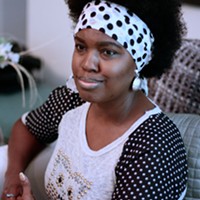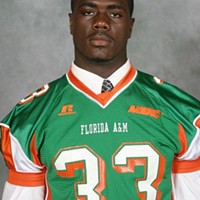On Oct. 22, people around the country donned black hoodies while marching to protest police brutality and the criminalization of young minorities. On the same day, 13-year-old Andy Lopez lay bleeding to death from gunshot wounds in Santa Rosa, Calif., beside a plastic toy gun police mistook for an assault rifle. That day, his parents learned they would never see their child alive again.
I grew up in a family with several police officers. I remember my uncle, a state trooper, teaching me to fire a handgun around age 11. I remember my cousin, a sheriff's deputy, teaching me to fire a shotgun at age 12. I remember both of them saying the same thing to me on those days; they made sure to repeat themselves so I understood: "There is one rule: Do not ever pull this gun out unless you intend to kill someone, and when you do, fire it without stopping until you know the person is dead."
Even though I would later watch my cousin stand trial for shooting and killing an unarmed man he thought was holding a gun, I never questioned that rule. I wonder if Erick Gelhaus, the Santa Rosa deputy who fired eight shots at Lopez, followed it, too.
Perhaps Charlotte-Mecklenburg Police Officer Randall Kerrick was taught the same rule. It could explain why he felt the need to fire 12 shots at injured, unarmed Jonathan Ferrell on that now-infamous Saturday in September, hitting him no less than 10 times before finally stopping the hail of bullets.
It seems like at least once a month, there's a new story of police in America misjudging a situation, overreacting with guns, and causing the death of an innocent person. And these are only the most outrageous stories, the most egregious errors by police that make national news. It's a safe bet there are plenty more that don't get our attention.
Why are police so quick to shoot and kill when an individual doesn't immediately follow their orders? Why don't they consider that maybe the individual is doing nothing wrong and the orders are confusing, completely unexpected or, in some cases, not even heard? Must they always shoot to kill, instead of injure or disable?
When did "protect and serve" become "comply or die"?
I asked an acquaintance who recently trained to be an officer (and who wished to remain anonymous for this story) exactly what he learned about the appropriate time to fire his weapon and whether he should always shoot to kill.
His answer? "I honestly don't remember. My training officers told me to forget everything I learned in the academy because it would get me killed. At the end of the day, if I feel for a second my life is in danger, no matter what, I'm gonna be the one who makes it home. And if I was wrong, then I was wrong, but I'm going home. I know it sounds extreme, but it's necessary for survival every day."
I don't believe that mentality is necessary. Kill or be killed is not the norm on Charlotte streets, and our country is not a war zone. Some may say that's an easy assertion for me to make since police put their lives at risk every day and I don't. I'd argue that having police on the streets with this mentality, combined with the authority vested in them by their badge and gun, puts everyone's life at risk every day — even our children.
No matter what their genetic makeup, law-abiding citizens should not have their lives depend on whether or not an officer has his or her fear rationality quotient in check. Police must remember they work for us, instead of assuming we are criminals or threats to their life until we prove otherwise.
One way to remind them is to give citizens a voice in police discipline when things go wrong. And no, the Charlotte Citizens Review Board does not count. Not until it is allowed to independently investigate allegations of police misconduct.
Earlier this year, it was reported that the Citizens Review Board, a panel created for citizens to independently monitor police conduct, was impotent. In 15 years, it had ruled in favor of police 79 out of 79 times, and had only heard arguments in four of the cases.
A task force was created to recommend reforms that would strengthen its effectiveness.
Despite its primary objective to fortify the power of the Citizens Review Board, the task force advised against giving the board authority to conduct independent investigations. This common-sense measure is also not written into the overhaul proposal City Council will consider this month.
While the proposed changes are a step in the right direction, they are futile; we'll still have a situation in which police are investigating themselves. When police investigate themselves, it's not surprising when they also exonerate themselves.
In the death of Ferrell, the CMPD quickly determined Kerrick had not followed proper procedure, and pressed charges against him within 24 hours. I would like to trust that such swift action taken against an officer found to be in the wrong will always be the case. But how can we, the public, trust a police department that has no transparency and accountability to the citizens it serves?
I guess a more relevant question is, why don't we, the public, fight for these things? It doesn't seem like hoodies and marches are doing the trick.

